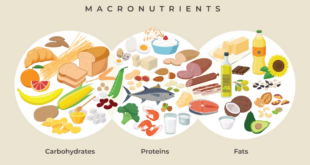Introduction
Water is essential to human life, constituting about 60% of our body weight. It is involved in numerous vital functions, including regulating body temperature, transporting nutrients, and removing waste. Despite its importance, many individuals do not consume adequate amounts of water daily, leading to dehydration and associated health issues. Understanding the significance of proper hydration and recognizing signs of dehydration are crucial for maintaining overall health and well-being.

Health Benefits of Staying Hydrated
Regulation of Body Temperature
Water plays a pivotal role in maintaining body temperature. Through processes like sweating and respiration, the body dissipates heat, preventing overheating. Proper hydration ensures these mechanisms function efficiently, especially during physical activity or exposure to high temperatures. 234
Joint Lubrication
Adequate water intake helps keep joints lubricated, reducing the risk of arthritis and other joint-related issues. This lubrication facilitates smooth movement and minimizes friction between cartilage surfaces.
Nutrient and Oxygen Transport
Blood, composed largely of water, transports essential nutrients and oxygen to cells throughout the body. Proper hydration ensures efficient circulation, supporting the function of vital organs and tissues.
Detoxification
Water aids in flushing toxins from the body through urine, sweat, and bowel movements. This detoxification process supports kidney function and helps prevent urinary tract infections and kidney stones.
Cognitive Function
Even mild dehydration can impair cognitive functions such as concentration, alertness, and short-term memory. Ensuring adequate hydration supports mental clarity and reduces the risk of headaches.
Weight Management
Drinking water before meals can promote a sense of fullness, leading to reduced calorie intake. Additionally, replacing sugary beverages with water decreases overall calorie consumption, supporting weight loss efforts.
Digestive Health
Water is essential for the proper digestion and absorption of food. It helps break down food particles, facilitating nutrient absorption and preventing constipation by softening stools.
Disease Prevention
Proper hydration supports the immune system, enhancing the body’s ability to fight off infections. It also reduces the risk of chronic diseases such as hypertension and kidney disease.
Recommended Daily Water Intake
The amount of water an individual needs varies based on factors such as age, gender, activity level, and climate. General guidelines suggest:
Men: Approximately 3.7 liters (125 ounces) of total water intake per day, including all beverages and foods.
Women: About 2.7 liters (91 ounces) of total water intake per day.
It’s important to note that individual needs may vary, and listening to your body’s thirst cues is essential. Increased physical activity, hot weather, or health conditions may necessitate higher water intake.
Signs of Dehydration
Recognizing the signs of dehydration is crucial for timely intervention. Symptoms include:
Thirst
Dark-colored urine
Fatigue
Dizziness or lightheadedness
Dry mouth and skin
Decreased urine output
If you experience any of these symptoms, it’s important to increase your fluid intake and consult a healthcare professional if symptoms persist.
Tips for Maintaining Proper Hydration
Carry a Water Bottle: Having water readily available encourages regular sipping throughout the day.
Set Reminders: Use alarms or smartphone apps to remind you to drink water at regular intervals.
Monitor Urine Color: Aim for pale yellow urine, indicating adequate hydration.news
Consume Water-Rich Foods: Incorporate foods with high water content, such as cucumbers, watermelon, and oranges, into your diet.
Limit Diuretics: Reduce intake of caffeinated and alcoholic beverages that can increase urine output.
Conclusion
Hydration is fundamental to maintaining good health, impacting everything from physical performance to cognitive function. Ensuring adequate water intake supports various bodily functions and helps prevent numerous health issues. By understanding the importance of hydration and implementing strategies to maintain proper fluid balance, you can enhance your overall well-being.
For more information on healthy living and nutrition, visit 365Tastes.
 Tastes | Live healthy every day
Tastes | Live healthy every day

